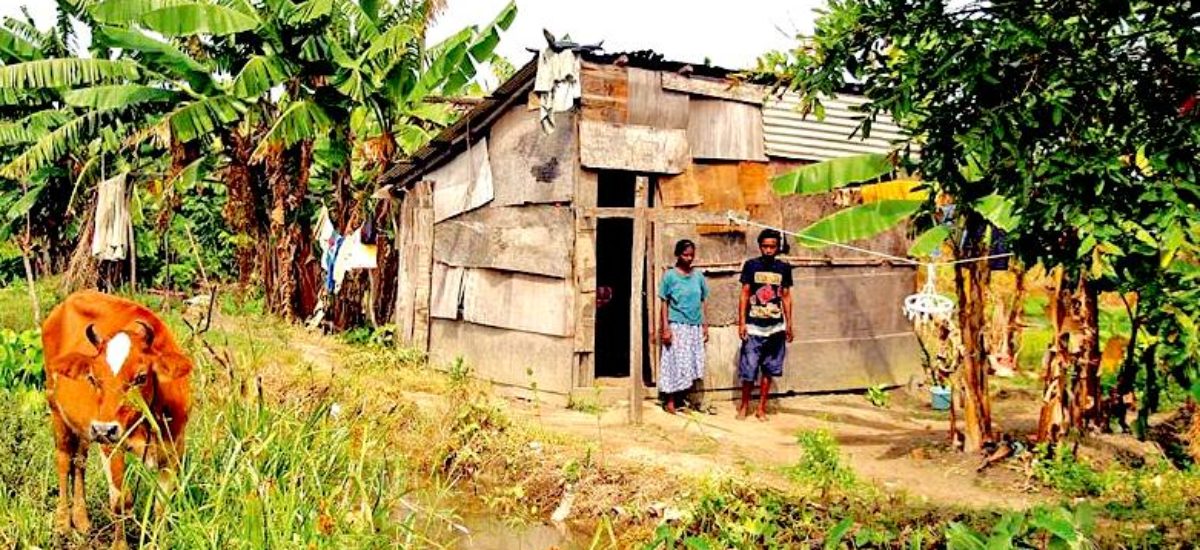Photo courtesy of Sunday Observer
Families in Sri Lanka are fast adopting negative coping strategies to deal with the economic crisis. A recently concluded Rapid Needs Assessment by Save the Children revealed that families are resorting to negative coping strategies such as borrowing money, selling assets and cutting down meals just to meet their basic needs.
During the past few months, the crisis has been fast affecting vulnerable children and families the most. The consequences of the economic collapse have now begun to spark concerns of a humanitarian crisis. The UN estimates 5.7 million people, including 2.5 million children, are in need of urgent humanitarian assistance.
The Rapid Needs Assessment was carried out between May and June 2022 to understand how families are being impacted and their children’s ability to survive, learn and be protected. The survey of more than 2,300 families, across nine districts, focuses on areas of food security and livelihood, protection and education. The survey aims to help humanitarian actors to understand the immediate needs of the most vulnerable communities and to plan evidence based and contextually relevant humanitarian responses for the crisis.
Another major concern is that families are now faced with food insecurity. The survey found that one out of five families reported that they were unable to meet their minimum food needs and children from one in three families had reduced how much food they eat each day.
Chathura* is a boy from Colombo. His father is a three-wheeler driver, whose livelihood has been severely impacted by the current crisis. He said, “My father is a daily wage earner. If he has work then we get to eat three meals, if not, we have to reduce how much food we eat each day”.
There is alarm about the growing child protection issues caused by the crisis. Poverty is among the main driving factors that force families and their children into further vulnerabilities. Concerns over child labour and exploitation are also beginning to set in. As of now, 2% of the households in the rapid needs assessment sample reported that at least one child is now engaging in paid work and this figure could potentially increase as the impacts of the crisis worsens. Additionally, nearly one third of the parents/caregivers (31%) reported observing changes in their children’s behaviour during the current economic crisis including changes in appetite, showing aggressive behaviours, difficulty focusing on tasks at home and in school, sleeping changes and unusual crying or screaming.
Thisal* is a 13 year old boy from Badulla and he said, “I don’t have a way to continue my learning properly because schools are often closed. I am scared that if exams are held, I might get low marks.”
Sri Lanka ranks second in South Asia in terms of wasting among children under five years. One factor is the governments faltering school meal programme, which provides one million of the country’s vulnerable children (grades 1-5) with a free school meal. However, the frequent school closures have not only impacted their education but also their ability to access these meals and therefore puts them at risk of malnutrition.
Pradeep is a child from Colombo, he speaks about the difficulties of online learning. “When I don’t have school I study at home. We are collecting money to try to get a mobile phone because the only one we have is my father’s. When he goes to work, I miss school. I have no other way of joining online classes.”
The survey also found that women headed households are being impacted. Among those who lost their income, the report found that 14% of women headed households lost all their income, a significantly higher proportion than male headed households.
Zaineb* is a single mother and widow from Colombo. As the sole breadwinner in her household, it is difficult ensuring her children have proper meals throughout the week. “My income has reduced by about 80%, maybe even 100%, factoring in the increased prices of food. We can’t live on Rs. 30,000. We have to make the little food we have stretch for the whole week,” she said.
*Names have been changed


